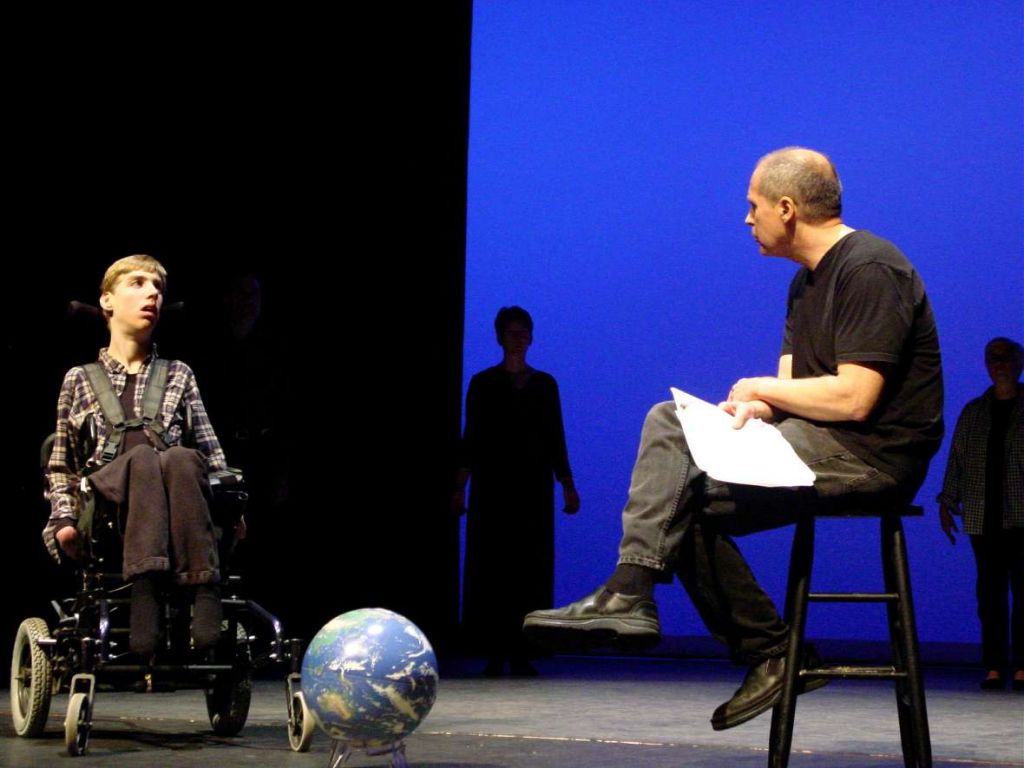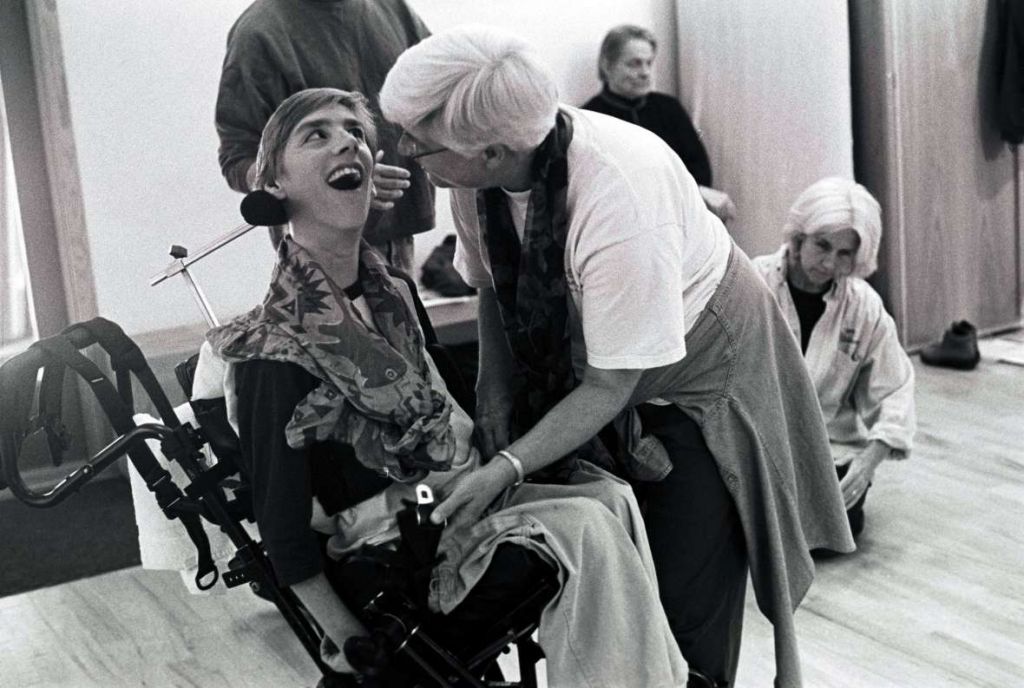
Photo by Alison Latimer. Cast Dance Together. Polly Medlicott, Chris Mueller-Medlicott, Richard Reho and Kendra Cumming.
Share This
Print This
Email This
A New Kind of Listening
People with significant physical disabilities often feel trapped inside their bodies, particularly those who can’t speak and who cannot give expression to the active, thinking, feeling mind inside. It is doubly cruel, then, that they are often left out of social interaction. Creativity, in its myriad forms, can sometimes provide the breakthrough that allows people with disabilities to express themselves and make important contributions to communal activities. One such collaborative art initiative inspired me, as a documentary filmmaker drawn to thought-provoking topics, to make A New Kind of Listening.
I began my documentary filmmaking career in 1996—a journey that brought my studies and interests in anthropology, education, and social justice together. One of the most powerful, challenging film projects I undertook started in 2005 when I began documenting the year-long work of the Community Inclusive Theater Group, an arts initiative committed to building more inclusive communities.
Very soon after beginning to shoot the film, I understood that theater group director Richard Reho brought a unique philosophy and vision to this work: his goal from the beginning was to make the process a co-creative one, in which the participants came together with no script and worked individually and collectively to build a theatrical work. Equally important, Richard was committed to radical listening and invited people with significant disabilities, some who were non-speaking, to join the project.
As I documented rehearsals, meetings, and exercises, I saw participants who had been segregated and ostracized from mainstream society all their lives, using mobile keyboards and augmentative communication to compose poems, share writings and reflections, and contribute actively to the creation of a theatrical work. I also saw how all members of this group benefited from the contributions of each of them. I became especially interested in seeing how Chris Mueller-Medlicott, a nonspeaking young man with cerebral palsy, worked intimately with Reho and others, and how he eventually became co-director of a theatrical performance. After the group’s inspiring final performance in Raleigh, NC, I understood the importance of this work, but I struggled to find the path to making a film.
Shortly after the group’s final performance, I met with Chris’s mother, Polly Medlicott, to discuss how this unfolding creative work might be produced as a documentary film, one that told Chris and Polly’s story in the context of this collaborative arts initiative. Polly was a participant in the Theater Group, and co-producer of the film. We saw the potential for a film that would be a catalyst for essential social change. We wanted to tell a story that would challenge unquestioned assumptions many people have about the intelligence and competence of people who are nonspeaking. A New Kind of Listening is both an advocacy call for the right to self-expression and a celebration of the power of inclusive arts to build community.
Since completing the film in 2009, A New Kind of Listening has been used to initiate dialogue on inclusion and the right to self-expression for people with disabilities. It is my hope that the film will invite dialogue, challenge definitions of disability and inclusion, move beyond conventional definitions of human communication, and inspire others to see the power of the arts to honor the voices of people with disabilities and our own inner voices.
A NEW KIND OF LISTENING Trailer from The Groove Productions on Vimeo.









Well thought out and written Kenny. God job on the documentary as well which we saw a while back and found very moving and informative.